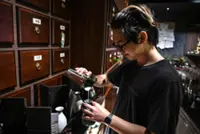A new transplant therapy could potentially help patients avoid the need for lifelong anti-rejection drugs, a new study suggests.
Scientists have developed a new technique that involves transplant patients receiving a pioneering therapy made by certain cells that have a role in the body’s immune system.





